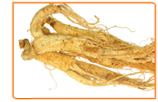Ginseng and Memory Loss: What It Does and How
It was once thought that fluctuating levels of estrogen were to blame for memory loss during menopause. Estrogen stimulates neurotransmitters, which allow parts of your brain to communicate with one another. Estrogen also helps dilate blood vessels in the brain, increasing the flow of red blood cells that help the brain to function. During female menopause, your estrogen levels decrease. In the past, efforts to stave off menopause memory loss called for estrogen replacement therapy (ERT). However, it appears that estrogen actually does little to improve memory.
Because estrogen doesn’t play a major part in memory loss or gain, researchers have been looking for other reasons for your brain’s fuzziness during menopause. It seems that it is other symptoms of menopause that may be contributing to your forgetfulness.
 Menopause is a time of extreme stress for many women. Weight gain in menopause, hot flashes, night sweats and mood swings, all contribute to massive amounts of tension. Menopause can lead to difficulty retaining and retrieving information. Lack of sleep combined with poor nutrition can make it extremely hard for your brain to keep up.
Menopause is a time of extreme stress for many women. Weight gain in menopause, hot flashes, night sweats and mood swings, all contribute to massive amounts of tension. Menopause can lead to difficulty retaining and retrieving information. Lack of sleep combined with poor nutrition can make it extremely hard for your brain to keep up.
Gingseng Benefits
Ginseng is one of the oldest ancient Chinese remedies, and is now thought to be able to help fight memory loss and other menopause symptoms. Benefits can include:
. Combats memory loss (Alzheimer's)
. Improves appetite
. Helps with digestion
. Fights fatigue and mental stress
. Works as an aphrodisiac
. Counters arthritis
. Fights headaches
. Increases blood circulation
Ginseng interacts with the body in two specific ways that help combat menopausal symptoms. The first way is a compound called ginenosides. Ginenosides are an adaptogen that can boost stamina and energy in humans, and are also capable of protecting against memory loss.
 The second way that Ginseng interacts with the body is through hormones. Hormones play one of the most important roles during menopause. When you are going through menopause, your body produces less of the vital hormones resulting in your menopausal symptoms. Ginseng increases levels of estrogen by substituting human hormones with phytoestrogenic hormones.
The second way that Ginseng interacts with the body is through hormones. Hormones play one of the most important roles during menopause. When you are going through menopause, your body produces less of the vital hormones resulting in your menopausal symptoms. Ginseng increases levels of estrogen by substituting human hormones with phytoestrogenic hormones.
Ginseng has been criticized recently because it does add unnatural hormones into the body and some people believe it can have serious side effects, such as breast cancer.
Click on the following link to find out what other natural remedies can help you treat menopause.



























